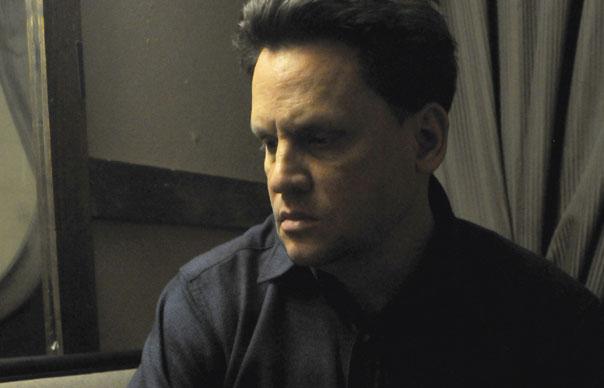From Mark Kozelek's living room window, he can see the Golden Gate Bridge, the San Francisco Marina and, he points out to Uncut, the Tiburon neighbourhood where Robin Williams killed himself. "It's hard for middle-aged people to see San Francisco taken over by young, Silicon Valley money," he says ...
From Mark Kozelek’s living room window, he can see the Golden Gate Bridge, the San Francisco Marina and, he points out to Uncut, the Tiburon neighbourhood where Robin Williams killed himself.
“It’s hard for middle-aged people to see San Francisco taken over by young, Silicon Valley money,” he says of the city he’s lived in for most of his adult life. Kozelek’s favourite restaurant closed down a few weeks ago, and the grocery store down the street, and the Lumiere movie theatre. “That stuff bothers me,” he continues,” and makes me feel old. But I’ve got this gorgeous view and a pretty good set-up and I’m still inspired every day – so why fix what isn’t broke?”
https://www.youtube.com/watch?v=UgaquGird4w
Today, Kozelek is answering questions by email, having avoided old-fashioned interviews for the past few years – “So I don’t get quoted with words like ‘dunno’,” he claims. Last night, Sun Kil Moon played a show at the Fonda Theatre in Los Angeles, part of a 2014 campaign which has been, even by Kozelek’s industrious standards, intense. It began with the release of Benji, the most critically-acclaimed album of his 22-year career, and is ending, more or less, with a tender, dolorous collection entitled Mark Kozelek Sings Christmas Carols.
Over roughly 17 albums, mostly using the band names Red House Painters and Sun Kil Moon, Kozelek has forensically documented his life: a compelling patchwork of family anecdotes, love stories, tragedies, tour grouches, bereavements and small talk about cats and boxing. In the past two years, though, four remarkable albums (Among The Leaves, Perils From The Sea, Mark Kozelek And Desertshore and Benji) have seen Kozelek accelerate his creative process with an evolved, off-the-cuff way of writing songs; a diaristic vigour that gives even greater intimacy to what he calls, archly, “middle-aged ramblings about dead relatives.”
Kozelek runs his own label (Caldo Verde), usually tours solo, and releases a steady stream of live albums to make a pragmatic living as a cult artist. But the rapturous reviews for Benji, especially, have given him a greater prominence than ever before, and exposed some other aspects of his personality to a wider – and slightly shocked – audience.
It has been an eventful autumn. On September 5, at the Hopscotch Festival in North Carolina, Kozelek’s characteristically grumpy stage persona found him lambasting a talkative crowd as “fucking hillbillies”. Online indignation duly followed, and by September 9 Kozelek was selling t-shirts with the slogan “All You Fuckin’ Hillbillies Shut The Fuck Up” on his website. Then, on September 14, Kozelek’s performance at the Ottawa Folk Festival was disrupted by the War On Drugs playing, at somewhat louder volume, on a neighbouring stage. “Who the fuck is that?” Kozelek asked the crowd. “I hate that beer commercial lead-guitar shit.” He then introduced his next song as “The War On Drugs Can Suck My Fucking Dick”.
A bewildered War On Drugs later took to social media to try and find out what had been going on, which only served to amuse, or provoke, Kozelek further. By October 7, he had written, recorded and released “War On Drugs: Suck My Cock”, in which he also referred to a journalist who’d taken offence at his “hillbillies” jibe as a “spoiled bitch rich kid blogger brat”. After ranting in similar fashion for two decades, Kozelek’s cantankerous humour had suddenly been turned into rolling indie-rock news. The War On Drugs’ Adam Granduciel eventually responded, exasperated. Kozelek, now pathological in his pursuit, released “Adam Granofsky Blues”, in which he read out Granduciel’s quotes punctuated by increasingly hysterical laughter.
This last phase of the story happened after our interview, however; one in which Kozelek talks unrepentantly about his “banter”, scathingly about social media and seriously, and in depth, about his art. Again and again, too, there’s a sense of him asserting his credentials as a decent human being. “I have love in my heart,” he says, “and I’m kind to people every single day of my life…”



